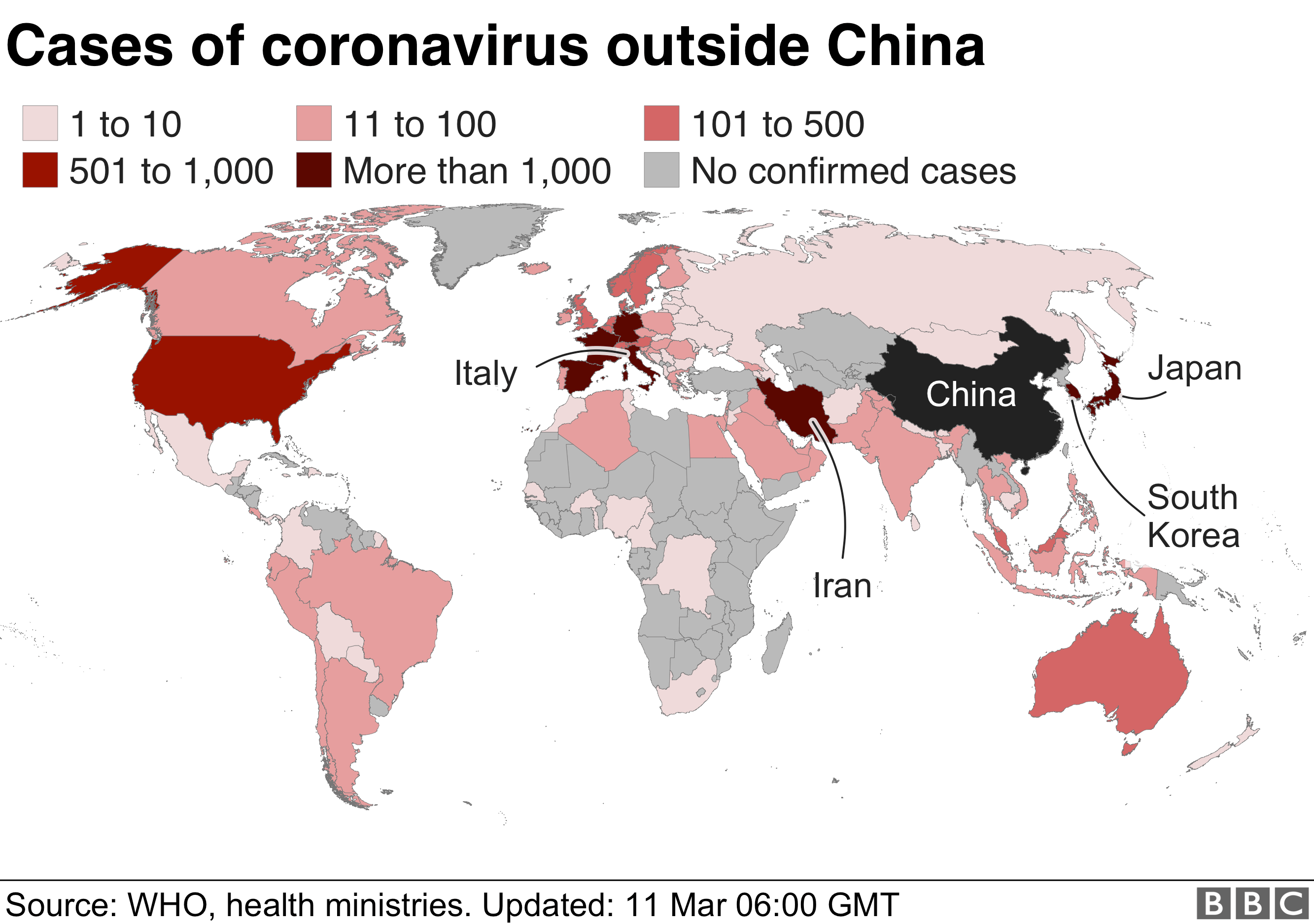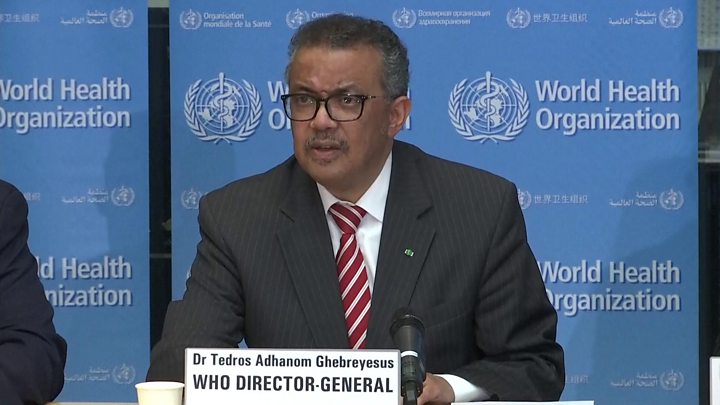The coronavirus outbreak has been labelled a pandemic by the World Health Organization (WHO).
It is a term that the organisation had refrained from using before now.
WHO chief Dr Tedros Adhanom Ghebreyesus said it was now using the term because of deep concern over "alarming levels of inaction" over the virus.
What is a pandemic?
A pandemic describes an infectious disease where we see significant and ongoing person-to-person spread in multiple countries around the world at the same time.
The last time a pandemic occurred was in 2009 with swine flu, which experts think killed hundreds of thousands of people.
Pandemics are more likely if a virus is brand new, able to infect people easily and can spread from person-to-person in an efficient and sustained way.
Coronavirus appears to tick all of those boxes.
With no vaccine or treatment that can prevent it yet, containing its spread is vital.

Why is the term being used now?
At the end of February, Dr Tedros said while coronavirus "absolutely" had pandemic potential it was not there yet because "we are not witnessing uncontained global spread".
What has changed is the number of countries dealing with cases. There have now been 118,000 in 114 countries.

Comments
Post a Comment